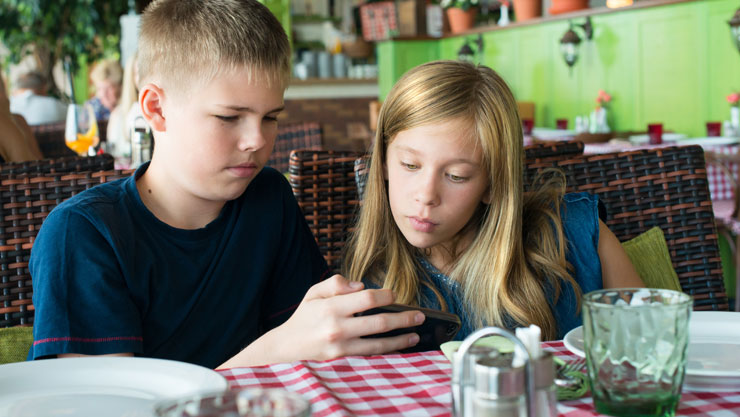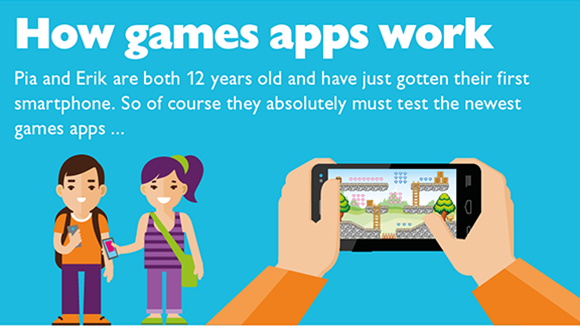Even young children figure them out just fine, because touch screens with their typing and wiping movements are more intuitive for children and easier than a computer mouse. App installation is absolutely straightforward and rarely takes longer than a minute. Also they often win us over with their unbeatable price: Many of them only cost one or two euros. Others are even for free. But what is often underestimated is that free apps can still become very costly through their in-app purchases. Furthermore, all users should be aware that apps are usually busy collecting data. Having a look at what data they access is therefore very important.

There are apps for virtually every age. The age limits given by app developers should however only be thought of as a rough guide. It’s best to form your own opinion about an app. So try it first yourself and then you can try it together with your child. The younger the children, the more you need to pay attention to how long they use it. Because children quickly get stimulated – unlike wooden building blocks – as apps offer constant reaction and feedback. Small children can thus develop certain expectations about playtime that make it all the more difficult to turn off the devices. The most important thing is that adults offer competent accompaniment for young children using media. With school-aged children, who are often more self-reliant, longer use times can be negotiated as the child grows. Older children often have a clear idea of what apps they want to have on their devices. This is because app choice gets influenced more and more by what their friends are using. Nonetheless, it’s advisable not to leave older children completely alone with their decisions but to be available to talk about apps.
Of course, the first thing children go for is games – where they must prove their skill, brains and responsiveness. But they also use a variety of programs. With streaming services, like Spotify, they listen to their favorite music. They watch movies and series on streaming platforms, like YouTube or Netflix. Their smartphone’s camera function also sees heavy use. They take photos and record videos to share on social networks, like Instagram or Snapchat.
Apps are also very helpful in school, because students get to put what they learn directly into practice with learning software, vocabulary trainers or digital dictionaries such as Leo Apps are also getting kids to read! Borrowing from the local library is now digital with e-book and other media apps; this way kids can download books onto their smartphones and tablets and read them anywhere.
For children there are apps with a wide variety of functions, and new ones are always popping up. Here you will find a selection of different app types with examples that are especially popular among children:
 For the developmental psychologist, Jean Piaget, playing was “work for children.” Children strengthen important skills such as creativity and teamwork.
Graphic: “How games apps work”
For the developmental psychologist, Jean Piaget, playing was “work for children.” Children strengthen important skills such as creativity and teamwork.
Graphic: “How games apps work”
 Thomas Feibel knows what children expect from apps. He is one of the leading journalists in the field of children and digital media.
Interview: “Apps offer lots of opportunities”
Thomas Feibel knows what children expect from apps. He is one of the leading journalists in the field of children and digital media.
Interview: “Apps offer lots of opportunities”
SCROLLER

Mobile Guide


